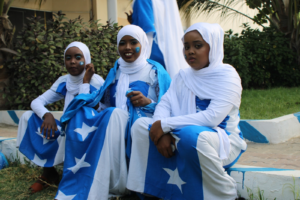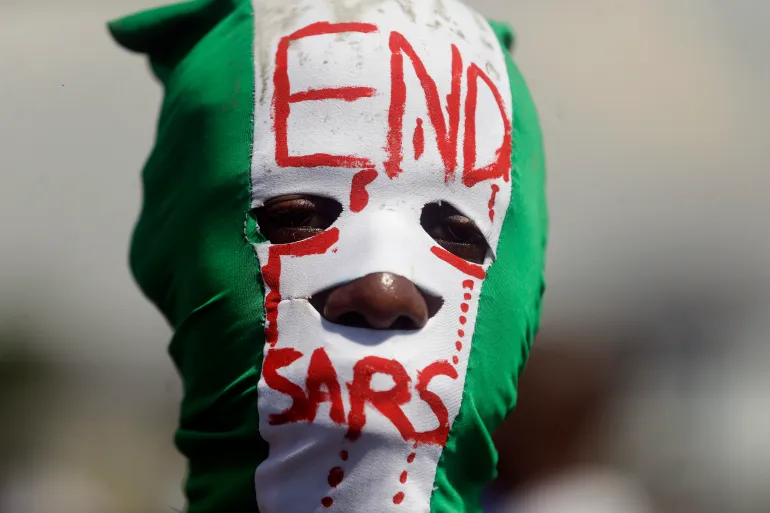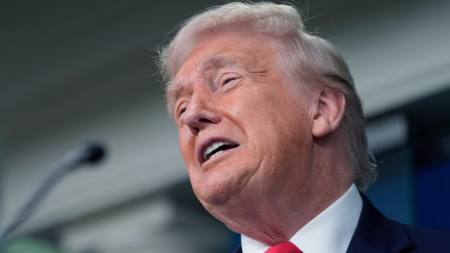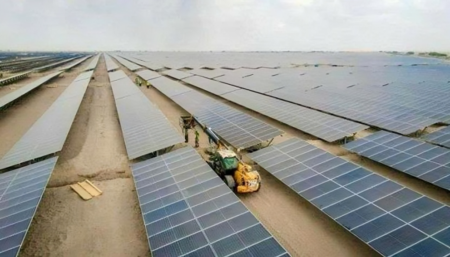Five years have passed since the historic End SARS protests shook Nigeria in October 2020, but the countless victims and their families are still waiting for justice.
Amid slow-moving judicial procedures and a stark conflict between official government narratives and the accounts of survivors, the deep wounds of 2020 remain open.
End SARS movement saw thousands of young Nigerians demand an end to police brutality.
It has left an indelible mark on the nation.
However, five years later, its core demands for accountability, justice, and comprehensive police reform are largely unfulfilled, leaving a generation questioning the state’s commitment to its citizens.
The Spark of End SARS Protests: A Generation’s Stand Against Brutality
In October 2020, Nigeria’s youth rose up in an unprecedented, decentralized movement.
Their target was the notorious Special Anti-Robbery Squad (SARS), a police unit that had become synonymous with gross human rights violations, including extortion, torture, and extrajudicial killings.
Thousands of young demonstrators took to the streets across the country.
They were demanding the unit’s dissolution and broad reform of the nation’s security apparatus.
The protests were initially celebrated for their organization, peaceful nature, and the powerful voice they gave to a generation weary of state-sanctioned violence.
Read also: Former French President Nicolas Sarkozy: First EU Leader to be Jailed for 5 Years! Discover Reasons
Lekki Massacre: A Scar That Hasn’t Healed
The demonstrations reached a tragic and bloody climax on the night of October 20, 2020, at the Lekki Toll Gate in Lagos.
According to harrowing accounts from local witnesses and investigations by international human rights organizations, Nigerian security forces opened fire on unarmed, peaceful protesters who were singing the national anthem and waving the Nigerian flag.
Five years later, the “Lekki Massacre” remains a deeply contentious and unresolved trauma.
A fierce debate rages over the exact number of casualties—the number of dead and wounded.
This is fueled by widespread official denial and contradictory statements that stand in sharp contrast to the evidence presented by survivors and rights groups.
For the families of the victims, this denial is a second trauma, obstructing closure and justice.
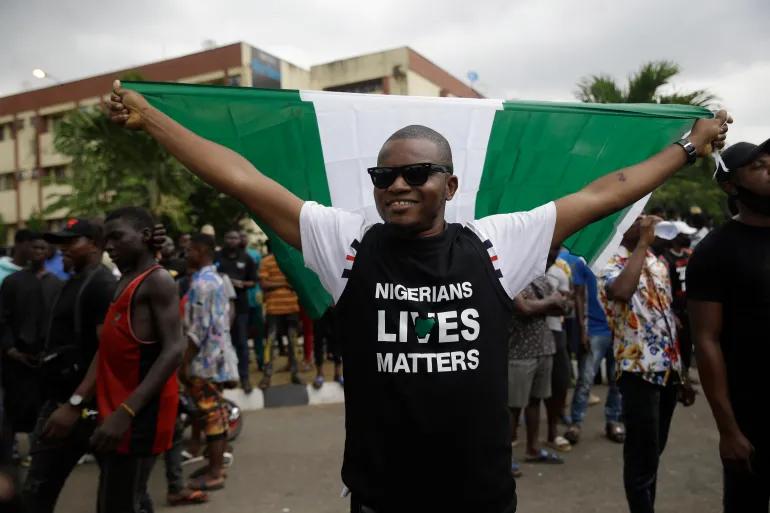
A Trail of Broken Promises and Unmet Demands
In the immediate aftermath of the protests and under intense domestic and international pressure, the Nigerian government formally disbanded the SARS unit.
It also established judicial panels of inquiry across various states to investigate allegations of police brutality and recommend compensation for victims.
However, many victims and their families now describe those promises as “ink on paper.”
- Unimplemented Recommendations: A significant number of the panels’ recommendations, particularly those calling for the prosecution of offending officers, have reportedly not been implemented.
- A Continuing Struggle for Survivors: Many families are still searching for the bodies of their loved ones. Meanwhile, survivors are left to cope with life-altering injuries and permanent disabilities, facing immense economic and psychological hardship with little to no state support.
Activists on the ground emphasize that this failure to deliver justice has only deepened the profound sense of distrust Nigeria’s youth feel toward state institutions.
Impunity, Memory, and an Uncertain Future
Human rights organizations warn that the pervasive culture of impunity—where security forces are not held accountable for their actions—is a dangerous precedent.
It not only encourages the repetition of abuses but also fundamentally undermines any genuine chance at the security sector reform that was a cornerstone of the End SARS movement.
Despite what activists call “attempts to bury the truth,” the memory of End SARS has transformed into a powerful symbol of resistance against oppression in Nigeria.
- A Legacy of Resistance: Each year, activists and survivors commemorate the anniversary with marches and silent vigils, holding firm to the belief that “delayed justice does not mean justice forgotten.”
- Regional Inspiration: The movement, which skillfully leveraged the power of social media for popular mobilization, has inspired similar youth-led protest waves in other African nations.
As Nigeria navigates new election cycles and confronts pressing economic and security challenges, the unresolved file of End SARS protests remains a critical test of the authorities’ commitment to reform and human rights.
Observers fear that the continued failure to address the victims’ demands could ignite new waves of popular anger, a significant risk in a nation where the youth—the most important core of End SARS movement—form the vast majority of the population.


